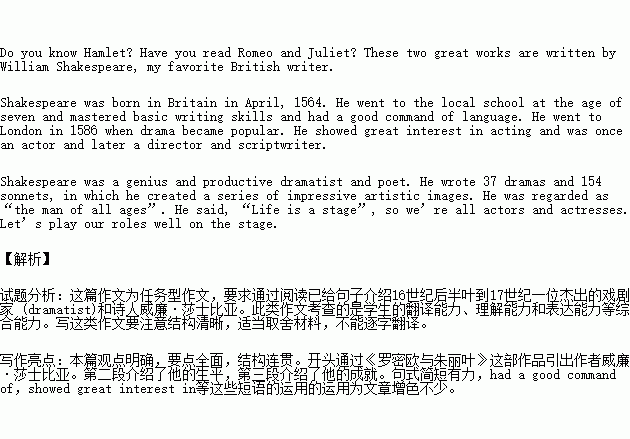��Ŀ����
����дһƪӢ����ģ�����16���ͺ��Ҷ��17����һλ�ܳ���Ϸ��� (dramatist)��ʫ��������ɯʿ���ǣ�William Shakespeare����
ע�⣺
1. ����100-120���ң�
2. ������䷭���������ݣ��ɸ�������Ҫ������ȡ�ᡣ
Ҫ�㣺
1. 1564��4�³�����Ӣ����
2. �����ڵ���ѧУ���飬������д���Ļ������ɲ�ӵ�нϷḻ������֪ʶ�����⣬����ѧ�������� (Latin) ��ϣ����;
3. 1586�������أ���ʱϷ�� (drama) ��Ѹ��������������������Ա�����ݺͱ��(scriptwriter);
4. 1588��ǰ��ʼд����������������37��Ϸ�缰154��14��ʫ�� (sonnet)�� ������һϵ�о������� (distinct) ���Ե��������� (artistic images)�����С�����ŷ������Ҷ�� (Romeo and Juliet)������ķ���ء� (Hamlet) ����������� (King Lear) ��Ϊ������
5. ������������������һ��ʱ���������������͡�(man of all ages����
��ϰ��ϵ�д�
 ��ս�п�����ϵ�д�
��ս�п�����ϵ�д�
�����Ŀ


 )������������д���üӵĴʡ�
)������������д���üӵĴʡ�